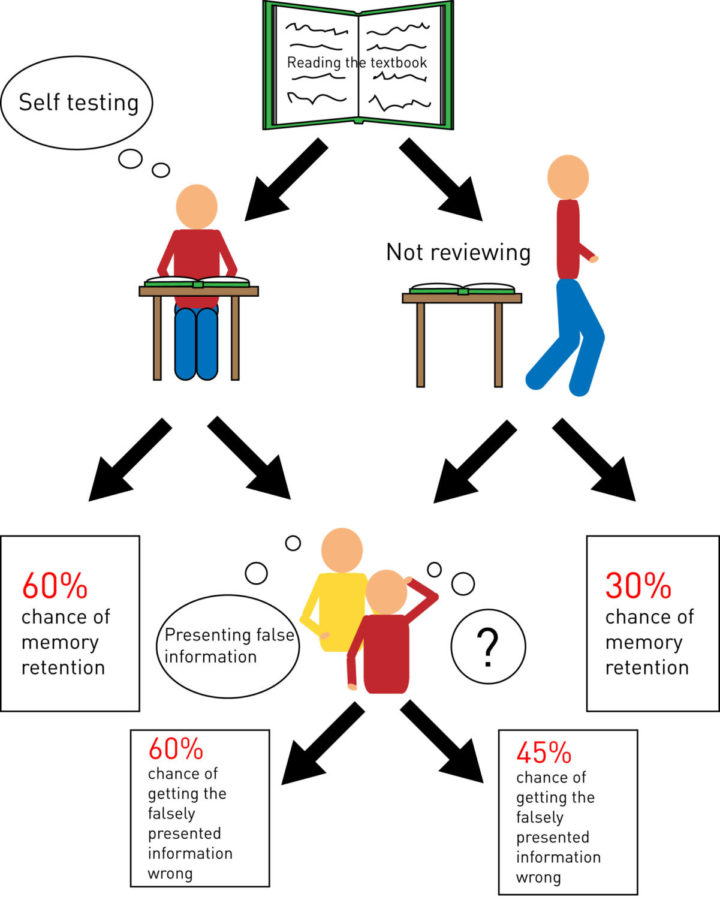Research indicates self-testing enhances memory
Graphic: Matt Wettengel/Iowa State Daily
Research indicates that self-testing after reading information helps increase memory retention. The study conducted by Dr. Chan also indicated that when presented with false information, people will doubt themselves and what they think they know, decreasing their chances for success come test time.
February 17, 2011
Research performed by Jason Chan, assistant professor of psychology, has found that if students self-test themselves after an event it will increase the likelihood that they will remember the information.
Chan performed a study testing 138 ISU students to determine how accurate testing is after an event and how the student’s memory compares when presented with false information.
Usually this experiment is from an eyewitness standpoint, but in terms of education, Chan related his study to college students studying for an exam.
“If college students self-test themselves after studying it is really good for their memory,” Chan said. “Therefore, when they take an exam they have a chance of doing better.”
Self-testing improves information retention and once you quiz yourself on something it’s hard to forget that material.
The Hixson-Lied Student Success Center also encourages students to self-test themselves by emphasizing the SQ3R method, which encourages people to review information in order to retain it.
“I think that everything we do at the Hixson-Lied Student Success Center focuses on encouraging students to self-test and review material so they can become more proficient learners,” said Susan Rhoades, assistant director of the Success Center.
Chan’s study also found that when presented with misinformation, self-testing proved not to be as accurate.
“From an educational standpoint, when you’re studying with friends and they teach you the wrong information that misinformation might actually hurt your performance, because now your second-guessing yourself on which information is correct,” said Jessica Kloeppel, graduate in psychology and Chan’s graduate assistant.
“When confused about which information is correct, question your friend, because testing each other will help you learn and remember that material,” Kloeppel said.
Instead of cramming the night before an exam, a simple review session right after reading class materials can help improve students’ memories and help them comprehend the information that they’re studying.

















